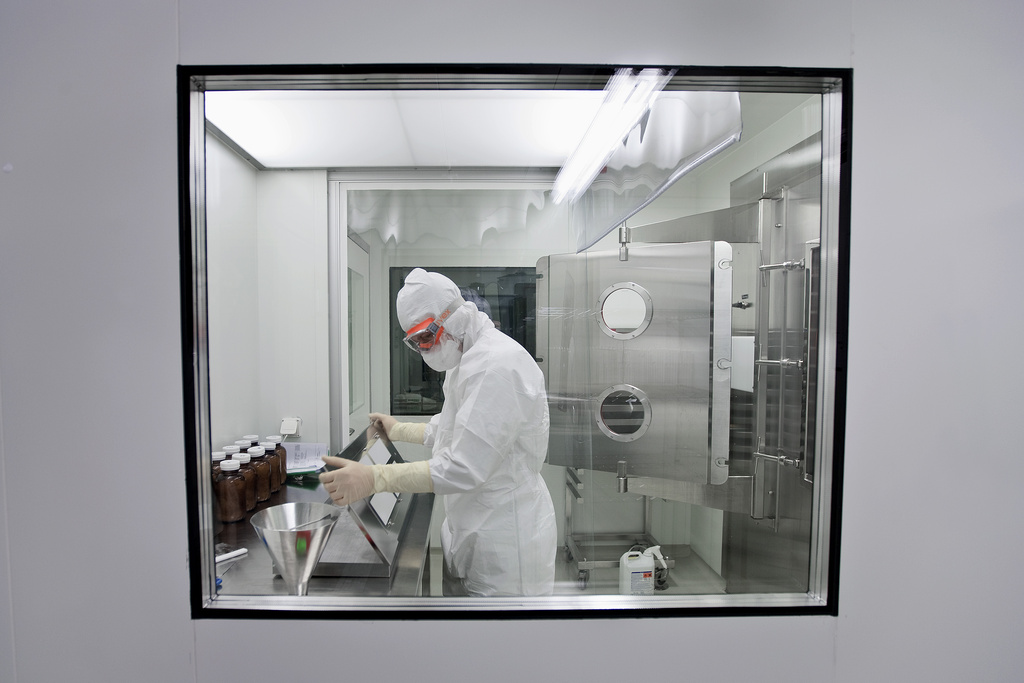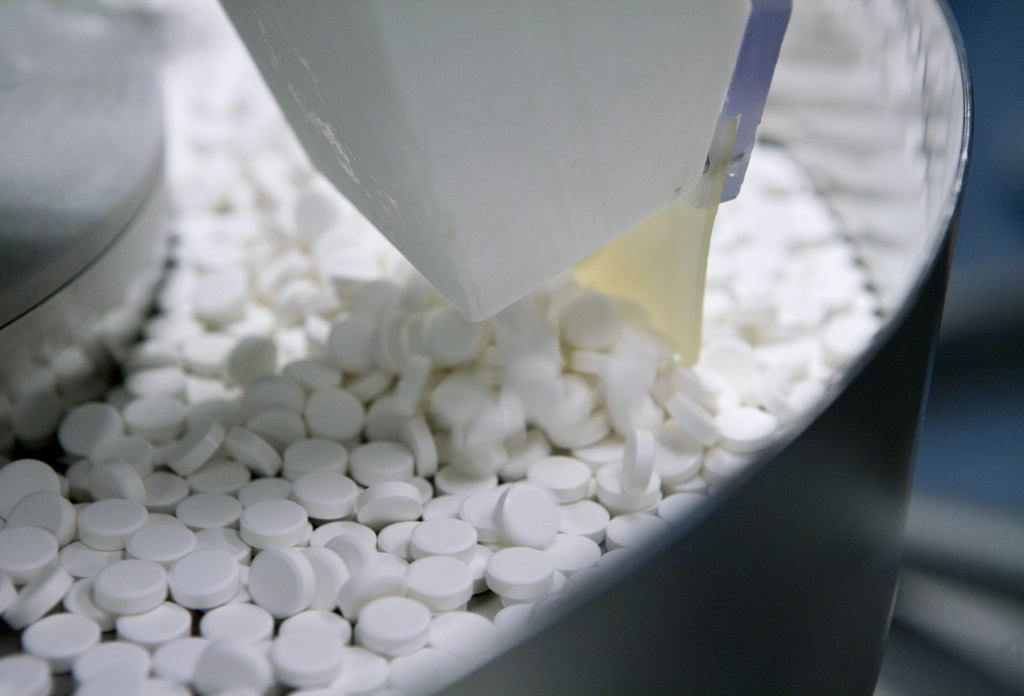Rags or riches: the biotech start-up

Switzerland remains one of the best places in the world to turn an innovative biotech idea into commercial reality, according to one recently formed firm that is targeting a niche in the market.
However, starting such a company from scratch – never a simple task – has recently become harder with the raising of entry barriers, Christophe Reymond, chief scientific officer of Anergis, tells swissinfo.ch.
An entrepreneurial spirit, a sound scientific basis and tenacity are required to persuade investors to pump money into the next big idea. The imminent closure of Swiss biotech giant Serono by its German owners Merck may help more start-ups thrive in the region in the long run.
Set up in 2001, Anergis has attracted funding to back its plan to provide medicines to combat allergies.
swissinfo.ch: What does it take to form a successful biotech start-up?
Christophe Reymond: To get a biotech company off the ground you need an inventive idea. But the idea alone is not enough in itself – it must be backed with solid academic research to show that it can be turned into a concrete reality.
You then need to commercially protect your idea with intellectual property patents. It is important to get good advice because this is a specialist field and academic scientists can easily make mistakes.
The next stage is to build up a team of entrepreneurs to turn the academic idea into a real business. This has failed in the past because there was a tendency for academic scientists to try to build a commercial operation all on their own without the input of business people.
Finally, you need to find the right investors who understand biotech and its pitfalls. If you get investors who do not understand the risks of biotech then this may lead to difficulties.
swissinfo.ch: How long does this take?
C.R.: In the first five years we were a virtual company conducting basic academic research. We started to [put together] an independent company and search for financing from 2005.
We conducted the first clinical trials on candidates against birch pollen allergy in 2008 and the results came out 2009. In 2011 we succeeded in getting financing for the next clinical trial phase starting this October.
From next summer we need to find financing for a phase three study which is key for registration of product, which we hope to achieve in 2016-17.
swissinfo.ch: What are the main obstacles to getting a biotech start-up off the ground?
C.R.: The real problem of biotech is the time it takes to develop a product. Ten years ago you could get financial backing for almost any idea, but it has become more difficult in the last couple years because too many earlier start-ups failed. Today you need solid research behind your concept because you will be challenged by scientists and from the commercial side.
swissinfo.ch: Why does Switzerland have such a successful biotech industry?
C.R.: In Switzerland we have high caliber education and research facilities and well trained, experienced people.
Having so many big pharmaceutical firms in Switzerland really helps in making contacts and finding business opportunities. Biotechs take all the risks and the large pharmas have the financial muscle and scale to fund clinical trials and marketing.
Swiss biotechs are very well received abroad – we have a good image. Switzerland has a long tradition of precision and the ethos of building up something piece by piece and this is reflected in our approach to biotech.
Rather than having a thrilling, flashy idea that lasts six months before the company disappears we try to be precise, efficient and methodical.
swissinfo.ch: What could be improved?
C.R.: The state-run CTI [Commission for Technology and Innovation] gives funding for specific projects, but there is very little state money for start-up companies in comparison with other European countries such as France and Germany.
swissinfo.ch: What impact will the closure of Merck Serono have on the Swiss biotech sector?
C.R.: Serono was a success story, one of the few biotechs to transform into a mid-sized pharma, so the major damage will be to the image of the sector.
But this may lead to a number of spin-offs being created as good people, who like the region and want to stay here, decide this is the best way to further their careers.
The big tree in the forest will be cleared, letting in sunlight for new growth on the ground.
Formed in 2001 by allergy expert François Spertini, Anergis is working on providing treatments for birch pollen (a vaccine called AllerT), ragweed, dust mite and food allergies.
Around 300 million people worldwide suffer from an array of allergies – a quarter of them reacting to tree pollens.
Anergis aims to provide long-term cures for allergy sufferers – as opposed to short-term relief from symptoms – with products that produce fewer side-effects than established treatments.
In March 2011, Anergis attracted SFr18 million ($19 million) in funds from venture capitalists to continue its research and trials.
Biotechnology is the science of using living organisms to enhance medicines, crops, fuels and other products.
Some 249 companies operated in the field of biotechnology in Switzerland last year, compared with 237 in 2010.
Most firms in the industry are clustered around the Basel or Zurich regions, but there are also significant groups in cantons Geneva and Ticino.
The industry generated sales of SFr8.7 billion in 2011, a figure down from 2010. Losses were SFr350 million last year, after profits of SFr480 million in 2010.
Some SFr2 billion was spent on research and development in Switzerland.
The industry employs more than 12,000 people in the public sector and just over 7,000 in the private sector, numbers that have remained stable over the past few years.
The industry attracted venture capital transactions totalling SFr458 million last year – up from SFr255 million in 2010.

In compliance with the JTI standards
More: SWI swissinfo.ch certified by the Journalism Trust Initiative













You can find an overview of ongoing debates with our journalists here . Please join us!
If you want to start a conversation about a topic raised in this article or want to report factual errors, email us at english@swissinfo.ch.